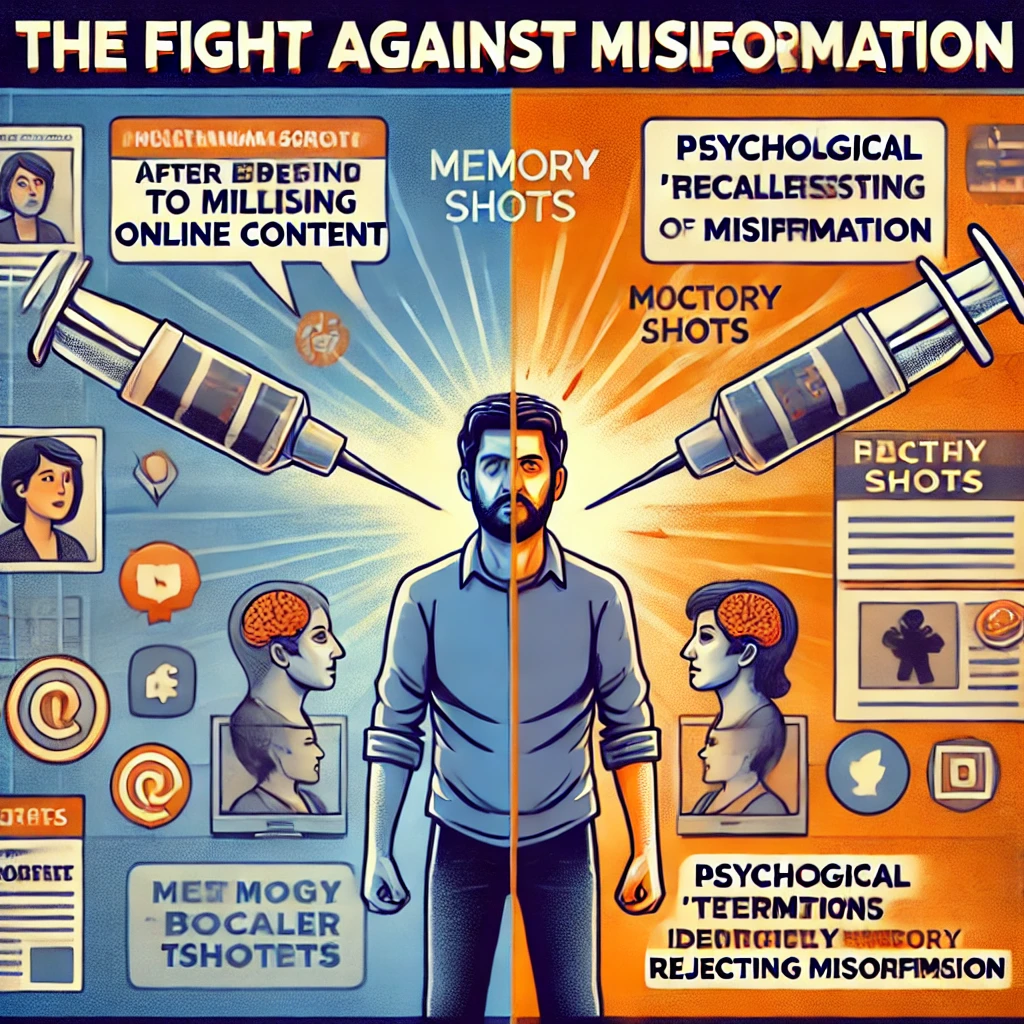Memory-based psychological boosters can help fight the growing menace of misinformation
With misinformation continuing to influence elections, health decisions, and public discourse, these findings offer a science-backed approach to strengthening public resilience. By integrating memory-based psychological interventions, societies can take a proactive approach to misinformation, ensuring that people are better equipped to distinguish fact from fiction in the long term.

Misinformation is a growing menace, shaping public opinion on critical issues like climate change, health, and politics. As false information spreads rapidly online, combating its influence remains a challenge. A study, "Psychological Booster Shots Targeting Memory Increase Long-Term Resistance Against Misinformation," published in Nature Communications (2025), explores how memory-enhancing psychological interventions can strengthen people's ability to resist misinformation over time.
Conducted by researchers from Oxford University, Cambridge University, University of Bristol, University of Potsdam, and Google Jigsaw, the study investigates how different types of inoculation interventions - text-based, game-based, and video-based - help individuals recognize and counter false information.
Using five longitudinal experiments with over 11,000 participants, the researchers discovered that while misinformation inoculation techniques can be effective, their impact weakens over time. However, memory-based psychological booster shots can significantly extend their effectiveness, providing new insights into combating the spread of false information in today's digital world.
How psychological inoculation works against misinformation
Traditional misinformation countermeasures focus on fact-checking and corrections, but research suggests preemptive inoculation - educating people about misinformation tactics before they encounter them - are more effective.
The study tested three types of misinformation inoculation interventions:
- Text-Based Inoculation: Participants read messages that preemptively warn them about common misinformation tactics, such as manipulating scientific consensus.
- Game-Based Inoculation: A gamified approach, where participants played the “Bad News” game, simulating how misinformation spreads and learning to recognize misleading strategies.
- Video-Based Inoculation: Short educational videos demonstrated how emotional language can be used to mislead audiences, teaching viewers to critically assess news content.
While all these interventions initially improved people's ability to identify misinformation, their effectiveness faded over time. The study sought to understand why and test methods to sustain their impact.
Memory-boosting interventions prove effective
The researchers identified memory as a key factor in misinformation resistance. Their findings suggest that the better people remember the lessons from inoculation interventions, the longer they remain resistant to misinformation.
To test this, the study introduced psychological booster shots - follow-up interventions designed to reinforce memory. These included:
- Repeating the original intervention (e.g., rewatching an inoculation video).
- Memory-focused booster interventions, which reminded participants of key lessons without repeating the full inoculation.
- Threat-based booster interventions, emphasizing the dangers of misinformation but without revisiting specific misinformation tactics.
The results showed that memory-based booster shots were the most effective, significantly extending misinformation resistance even 30 days after the original intervention. Meanwhile, threat-based boosters had little impact, reinforcing the idea that retaining critical thinking skills is more important than fear-based messaging.
Implications for combating misinformation in the digital age
The study’s findings have major implications for governments, educators, and tech companies working to curb misinformation. Instead of relying solely on fact-checking or debunking, institutions should prioritize memory-strengthening interventions to make misinformation resistance longer-lasting.
Key takeaways from the research:
- Memory plays a crucial role in sustaining misinformation resistance. People forget over time, but memory-boosting strategies can extend the impact of interventions.
- Short, scalable interventions - such as text messages, games, and videos - can be effective at building misinformation immunity if reinforced periodically.
- Educational campaigns should focus on teaching misinformation recognition techniques, not just warning about misinformation threats.
With misinformation continuing to influence elections, health decisions, and public discourse, these findings offer a science-backed approach to strengthening public resilience. By integrating memory-based psychological interventions, societies can take a proactive approach to misinformation, ensuring that people are better equipped to distinguish fact from fiction in the long term.
- FIRST PUBLISHED IN:
- Devdiscourse










